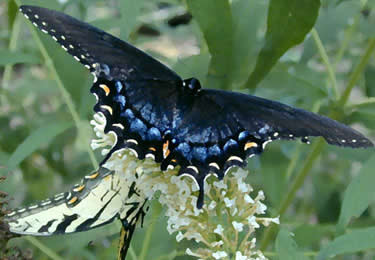Familiarity Breeds Respect
Yes, I know the saying says otherwise. And I have known people, jobs and towns where, the more I learned about them…. well, we do sometimes come to despise that which has become too comfortable, too familiar. But maybe it is more often true in my experience that ‘familiarity breeds respect’, and this has entered my thoughts this week as I have pondered how answer a sincere question posed to me by a regular Fragments reader.
Jim wonders how necessary it is to have a scientific knowledge of the details of nature in order to enjoy it. On the one hand, he says that he is enriched in some sense when I describe a particular species of wildflower or butterfly using a common or scientific name to distinguish it from it’s relatives. At the same time, he wonders how necessary the jargon of science is to enjoying a day in the woods. Can one not just see a flower as ‘small, yellow and pretty’ without needing to know any more about it than that?
Yes, I would say that the celebration and enjoyment of nature and place can be generic, painted with a broad brush and experienced at the level of merely being there– in the woods among trees and flowers and birds, and no names needed. The poetry and prose of nature was expressed long before Mr. Linneaus helped us see both the similarities and the differences among the creatures of sea and field and forest and gave them Latin names.
Many of us seem to have become attracted to the nature-world when very young, perhaps even before having any words at all to describe it. In my own case, up to my junior year in college (when classes finally became ‘field-oriented’) I loved the natural world, but all snakes were unknown and therefore dangerous and plants were pretty much all the same. My ignorance of nomenclature did not make me love being outdoors any less. But I certainly understood the intricacies of nature much less then when I lacked names for things. As a (former) teacher, I understand the grievous task of learning them, and have had to do my share of convincing students of the merits of knowing at least some creatures by their names.
There is more to nomenclature than assigning a common name, or Latin genus and species name to things, Jim. If I tell you that I have been watching a Monarch butterfly (and not just a ‘orangish butterfly’), you may know immediately about it’s preference for milkweed, about how this diet (and the creature’s color and pattern) effects its defenses against predators, and you know about its amazing migration across the country each fall. All that you know because the name distinguishes this orange and black butterfly from other similar creatures. The name places the thing in a larger context. Knowing the name confers relationship, weaving that organism into the fabric of the bigger scheme of things just by knowing ‘who’ it is.
And of course, it is only by virtue of the fact that organisms have fixed and universally agreed-upon scientific names that lets me know instantly, when a reader from California tells me she finds Dryopteris marginalis in her back yard, it is the same Marginal Wood Fern that grows right here in our valley. The name becomes a common language that gives me a connection to others and their places far away. On the other hand, for her to tell me simply “I have ferns here” would do little to unite my world with hers.
Familiarity breeds respect, and in a sense, it creates friends of nameless birds, trees, flowers or insects. A friend is not a generic person but a person you recognize as unique, you know their particular history, their preferences and the relationships they have with other friends and their community. To me, plants and animals that have names are like old friends. I know that may sound rather strange. But each spring, I know when and where to look for the particular ‘little yellow flower’ called “Perfoliate Bellwort”. And when I hear the wheezy sound of the Black and White Warbler in mid-May, I pretty well know where in the tree he will be calling from and where he is going when he leaves here later in the spring.
To learn the name of a creature confers the opportunity to comprehend something of the ‘natural history’ of it. It doesn’t exist alone but lives in an ‘oikos’ or ‘household’ of nature, and it is from this Greek root that we get the word ‘ecology’… the integrative understanding of interrelationships that form the remarkable tapestry of the natural world. The patterns therein are more easily overlooked when we don’t have ‘friends’ among the nameless crowd of ‘pretty yellow flowers’. And they (or their habitats) are at greater risk from any number of threats if we think of all of them as interchangeable and coequal.
In the yarns and ramblings and images in this weblog, I describe a personal ecology of relationship with place. I fumble with words in my effort to understand the ways I fit into this peculiar time and place, this niche. I can’t tell my story fully apart from these other fellow creatures and the physical geography of the space around me. The passing of the seasons in this valley is measured by the rhythms and cycles of particular and known fellow creatures that live for a time in our garden, down the valley, on our ridge, in the creeks.
My ‘old friends’ help me better understand my own inner ecology in this patch of cove hardwood forest in Floyd County in the Southern Appalachians. Like the very hills themselves, they are part of a design and purpose that speaks to me of things eternal, not things to be worshipped in themselves, but pointing me towards That One. The words in Fragments are both about this place, and about my living immersed in its mysteries and pleasures, among the myriad creatures great and small. I could live happily here without names for things and would continue to write of mere birds and bugs and flowers with joy and wonder. But for me, having names for living things enriches my understanding of them and of my own place in this cathedral made without hands.


About The Author
Fred First grows words and images on a rocky old farm in northeastern Floyd County. His daily ramblings can be found on his weblog, Fragments from Floyd.


